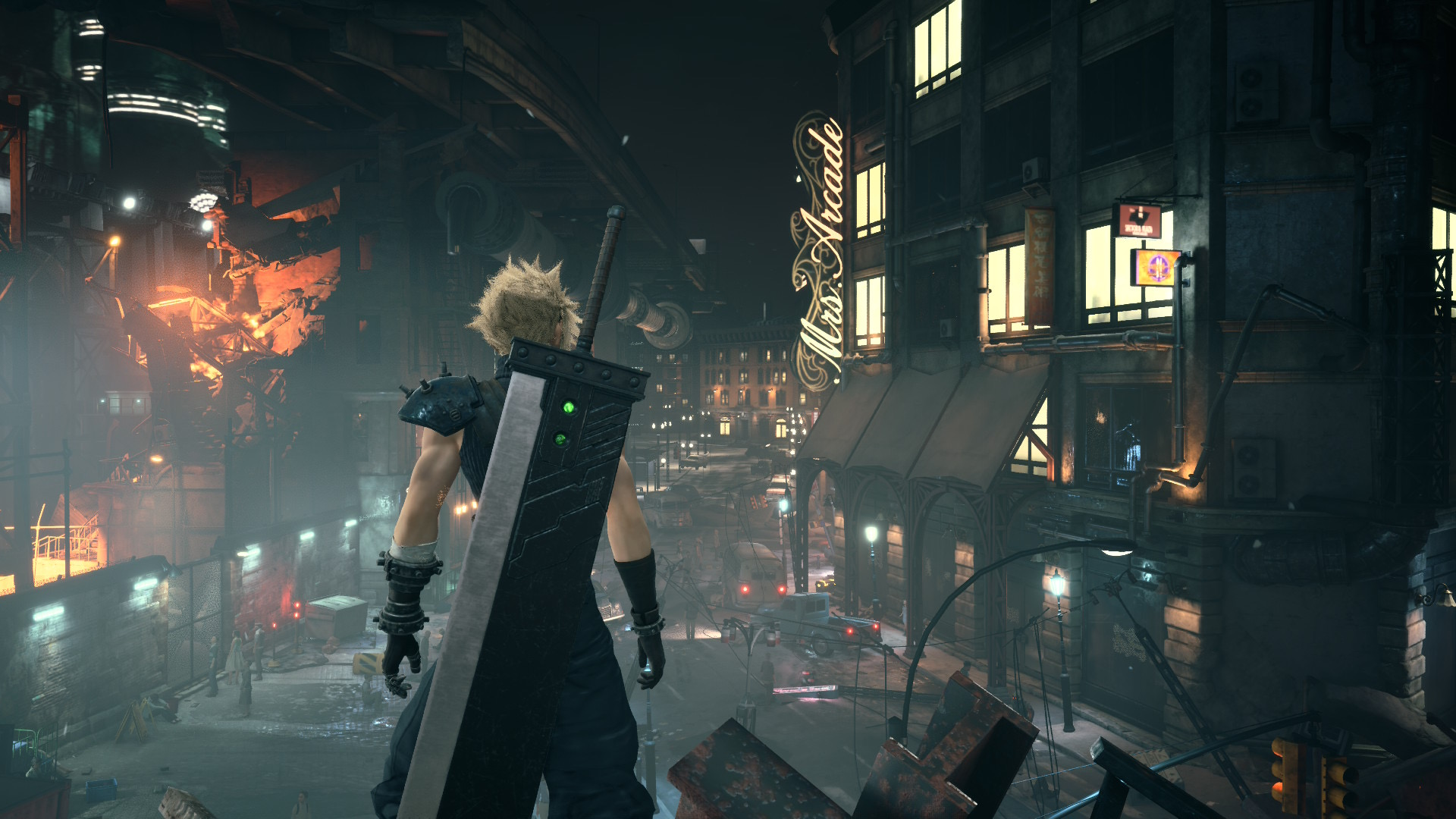I’m not sold on foldable laptops — here’s why
Foldable laptops still feel like a gimmick
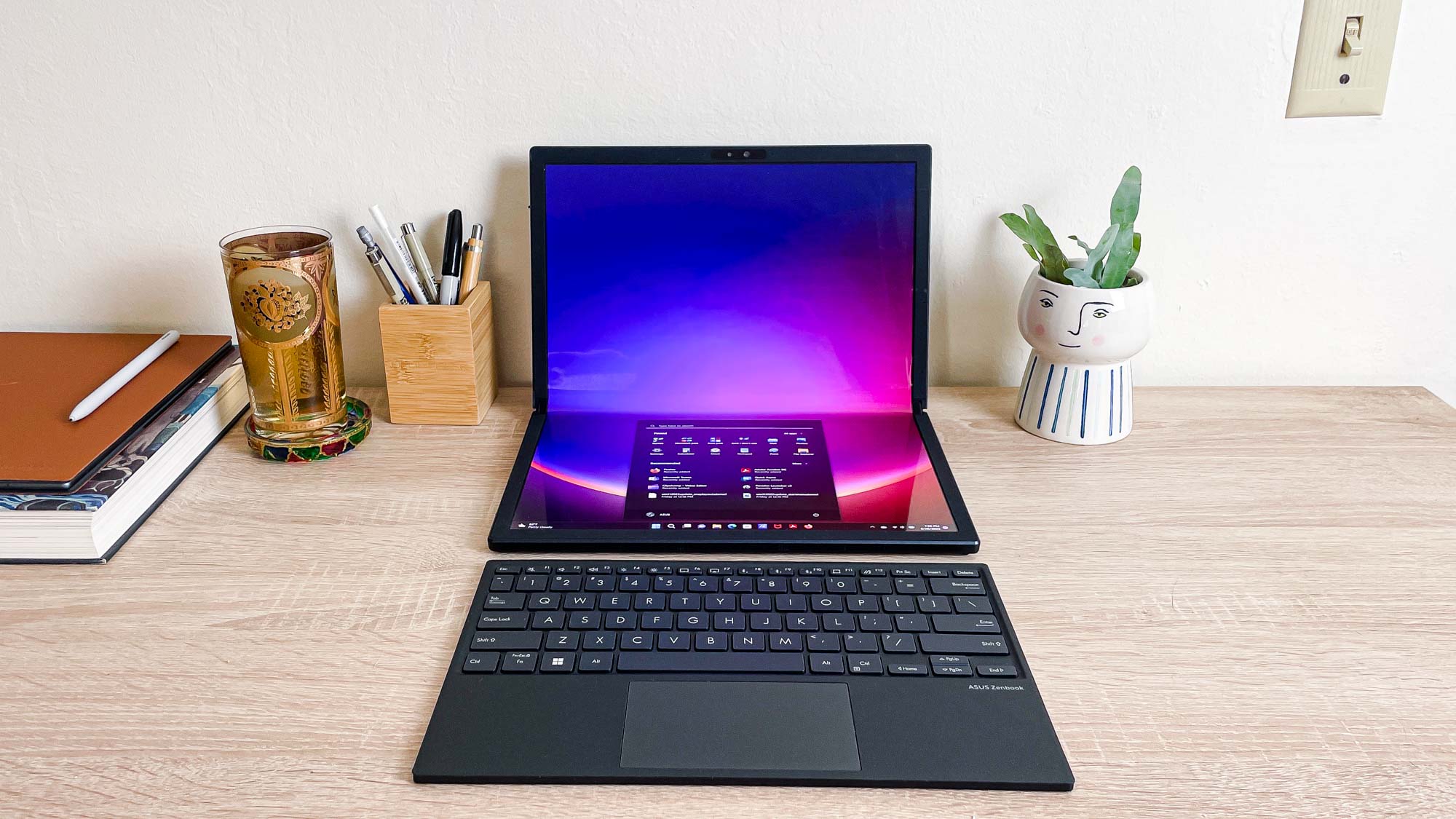
Foldable phones — as in phones with foldable screens — have gained some traction in recent years but foldable laptops are still a rare commodity. The original Lenovo Thinkpad X1 Fold was the first foldable laptop to hit the market. Its successor, the Lenovo ThinkPad X1 Fold 2022 released this year, as did the Asus Zenbook 17 Fold OLED. Dell is also working on a prototype foldable laptop currently dubbed Project Ori.
Computing Editor Alex Wawro is optimistic about the future potential of foldable laptops, as expressed in an op-ed about the one thing that’s actually selling him on foldable laptops and his Asus Zenbook 17 Fold OLED review. For his Lenovo ThinkPad X1 Fold 2022 hands-on piece, Global Editor in Chief of Tom's Guide, Mark Spoonauer, stated that he wasn’t sure who the foldable laptop was for. I tend to agree with the latter sentiment, though I’m perhaps a bit more skeptical about foldable laptops overall.
There’s no doubt that foldable laptops are impressive pieces of technology. Perhaps I’ll eventually see them as a viable alternative to a normal laptop. But right now, I’m not sold — both literally and figuratively.
Underpowered and expensive
The original ThinkPad X1 Fold was a gorgeous laptop but it was an underpowered battery hog that had a starting price of $2,500. The current model shares the same starting price — though it packs a 12th gen Intel Core i5 or Core i7 chip that’s superior to the Lakefield chip that powered the previous X1 Fold.
We ran into trouble when trying to play games on the Zenbook 17 Fold since it doesn’t have a discrete GPU and relies on an integrated Intel Xe graphics GPU. The Fold couldn’t even handle typically easy-going games like Sid Meier's Civilization VI and Crusader Kings III. It fared better with indie titles like Dicey Dungeons and Into the Breach, however.
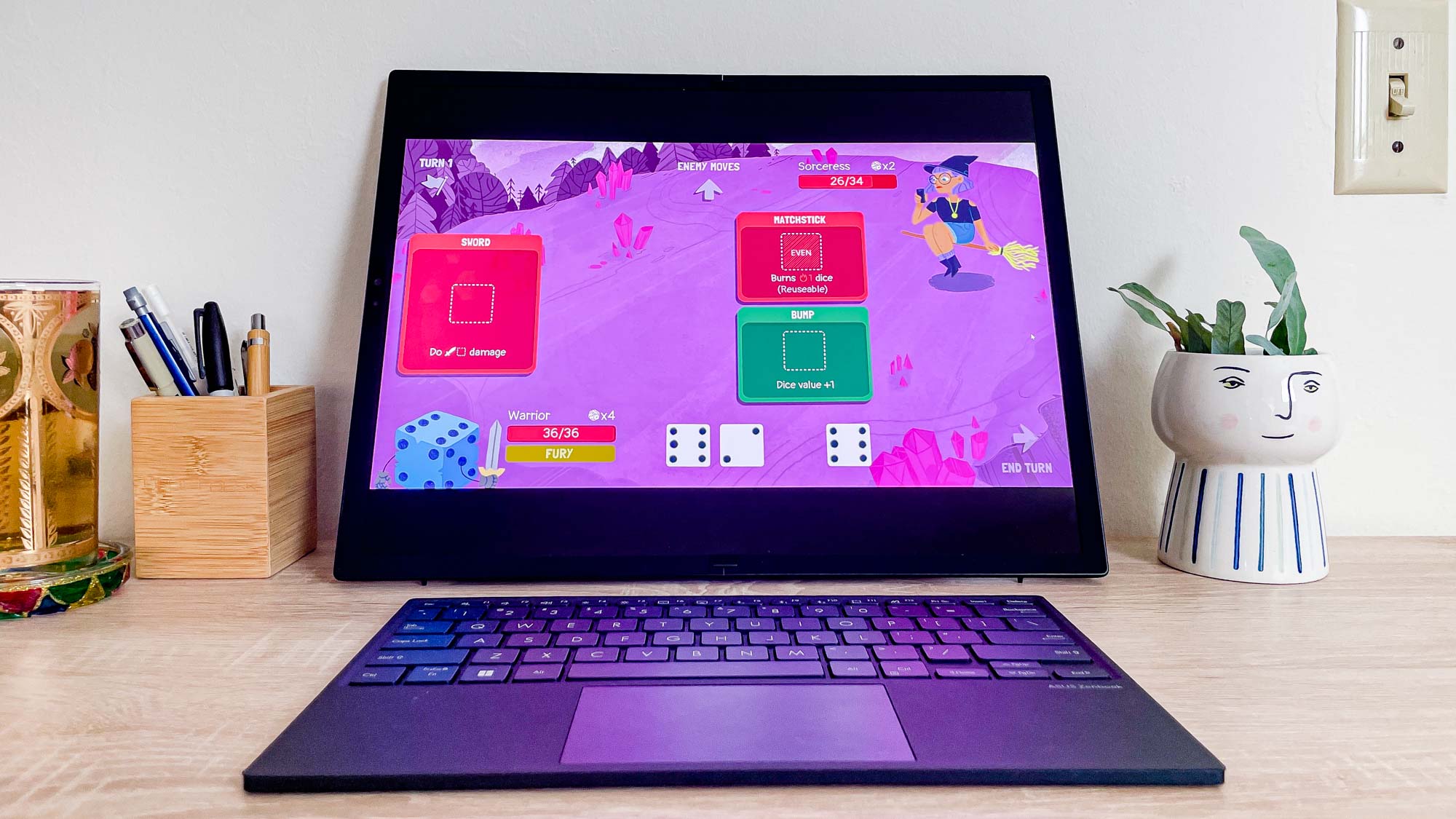
If I’m paying $2,500 for a laptop or computer, it better be able to run the best PC games. The Dell XPS 15 OLED I reviewed is valued at $2,299 and was able to run titles like Doom Eternal and Cyberpunk 2077 at medium to high settings without a problem. I’m singling this laptop out because it’s not marketed as a gaming laptop yet it absolutely crushes the Zenbook 17 Fold in performance.
The Zenbook 17 Fold is a competent enough productivity machine, but if I’m just looking for a laptop for work and watching videos, I can get the MacBook Air M2 for $1,199 instead. Even if I get a configuration valued at $1,899 like our review unit, I’d still save money.
Get instant access to breaking news, the hottest reviews, great deals and helpful tips.
Though cost is important to me, I tend to primarily focus on a laptop’s overall performance when shopping for one. Until foldable laptops come packing an Nvidia or AMD GPU, I’ll stick with the best gaming laptops or the best laptops instead.
Regular laptops are already light and portable
Laptops are meant to be portable computers you can easily carry around wherever you go. This is why the MacBook Air and ultrabooks in general are so highly regarded by folks. Foldable laptops hold the promise of being even more portable since you can fold and slip them into a carrying case.
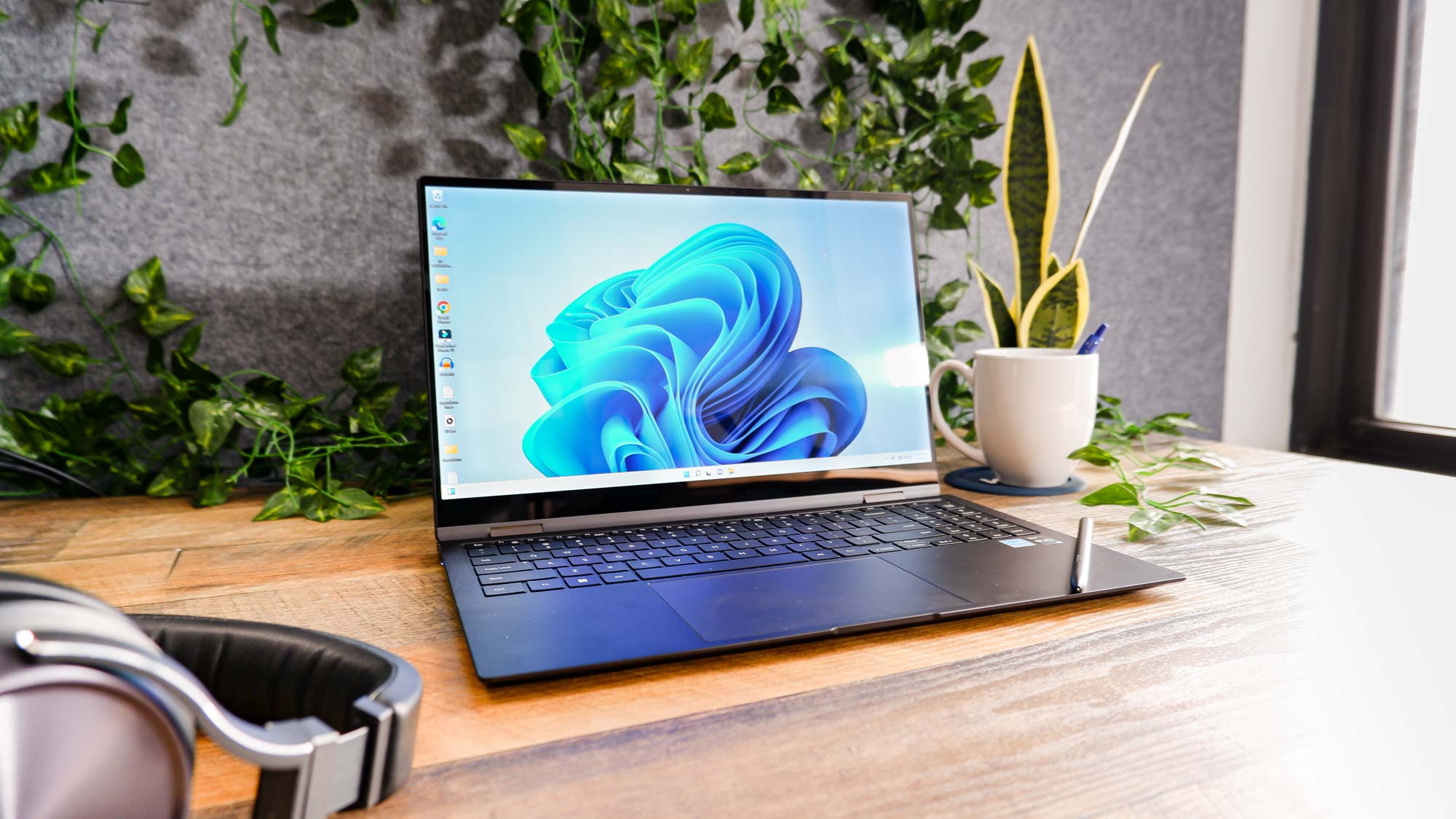
I think that’s all well and good, but I’m already happy with the portability of modern laptops. The Samsung Galaxy Book2 Pro 360 — which was my favorite laptop of 2022 — is so thin and light that it’s easy to forget I’m carrying it around. The same is true of the current MacBook Air M2 and the last-gen MacBook Air M1.
Regarding weight, the ThinkPad X1 Fold is slightly heavier than a MacBook Air M2 (2.8 pounds vs 2.7, respectively). With the attachable keyboard and stand, the weight jumps up to 4.19 pounds. That doesn’t seem lightweight to me, comparatively speaking.
Laptops are versatile enough
We often discuss the versatility of foldable laptops when reporting on these devices. And with good reason.
For example, the Zenbook 17 Fold has four to five different positions — from folded like a normal laptop with the included ErgoSense Bluetooth keyboard tucked on top of the bottom half, to unfolded like a big book with the keyboard on the desk in front of you and the full 17.3-inch display stretched in front of you.
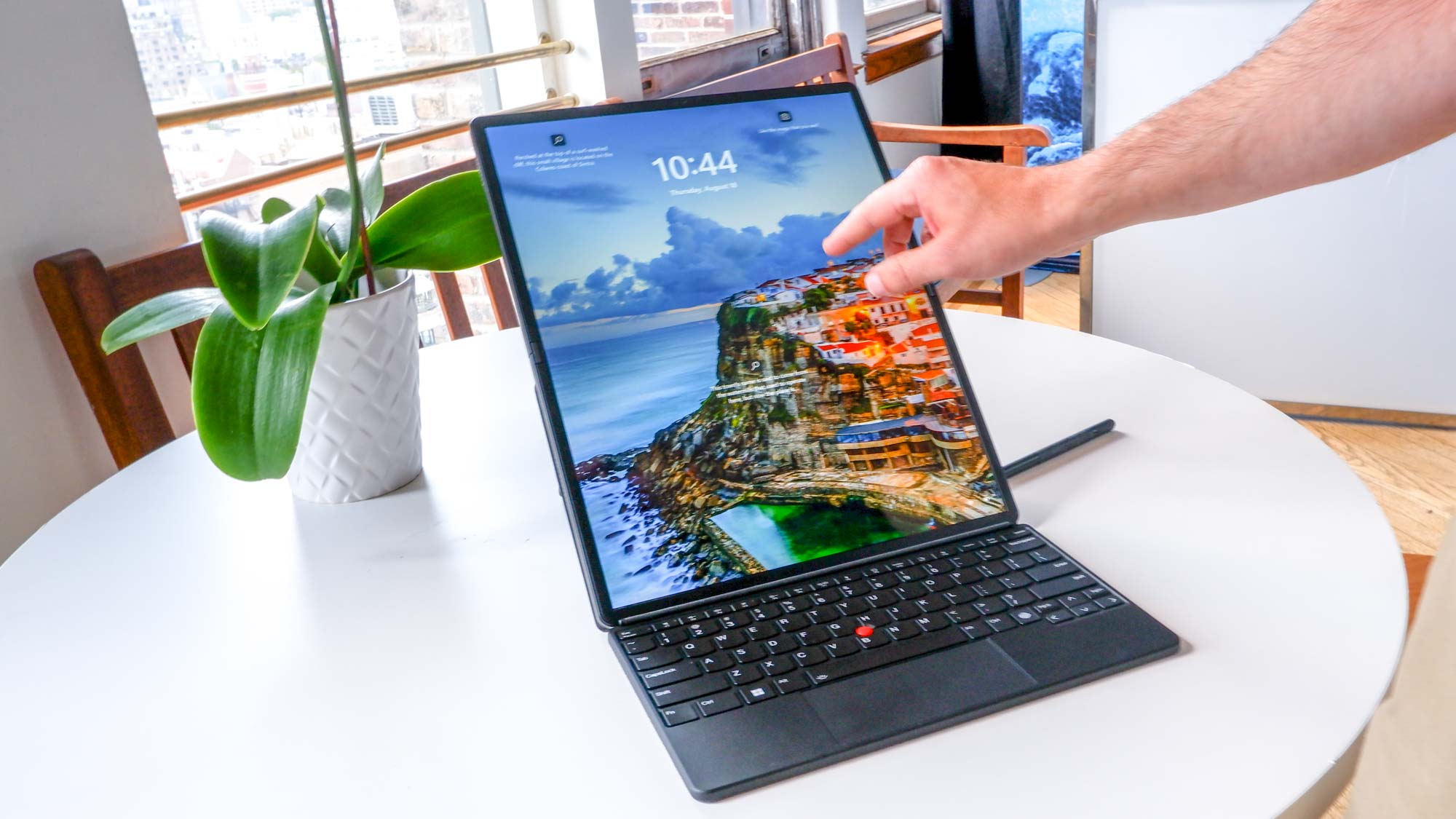
I won’t sit here and say regular laptops are as versatile as foldables. They’re not. You can unfold the Zenbook Fold 17 vertically and set it up on the built-in stand (or perhaps a sturdy book) to effectively get a pair of 12.5-inch touchscreens stacked on top of one another. You can also fullscreen the foldable and use the 17.3-inch touchscreen as a tall vertical display for reading, as pictured above. This functionality isn’t something normal laptops typically offer.
If anything is going to sell foldable laptops, it’s going to be their extreme versatility. However, while I’m impressed by the variety of modes foldable laptops can have, it all feels somewhat gimmicky to me. A cool gimmick, but a gimmick nonetheless. At the risk of sounding like an old man yelling at clouds, I don’t need laptops to be more versatile. They’re fine as is.
Outlook
As things stand, I’m not overly impressed with foldable laptops. However, that doesn’t mean I’ll always feel this way. Even if the Lenovo ThinkPad X1 Fold isn't a device I’d buy, it’s a marked improvement over its predecessor. Progress will no doubt continue, with foldables getting better with each iteration.
But for now, I’ll wait for foldable laptops to become as powerful and affordable as standard laptops. Who knows, perhaps something will come along sooner than expected. After all, CES 2023 is right around the corner.

Tony is a computing writer at Tom’s Guide covering laptops, tablets, Windows, and iOS. During his off-hours, Tony enjoys reading comic books, playing video games, reading speculative fiction novels, and spending too much time on X/Twitter. His non-nerdy pursuits involve attending Hard Rock/Heavy Metal concerts and going to NYC bars with friends and colleagues. His work has appeared in publications such as Laptop Mag, PC Mag, and various independent gaming sites.
 Club Benefits
Club Benefits





